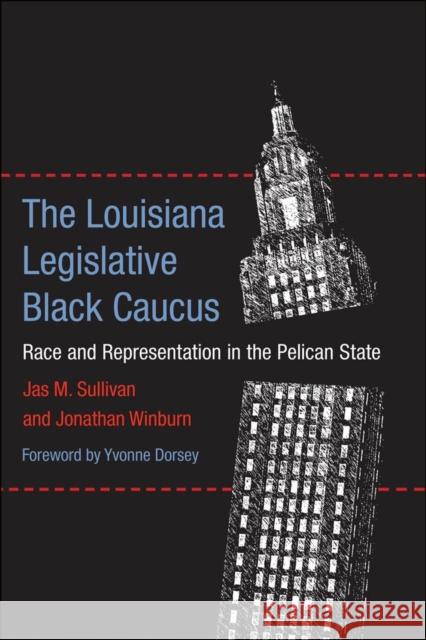The Louisiana Legislative Black Caucus: Race and Representation in the Pelican State » książka
The Louisiana Legislative Black Caucus: Race and Representation in the Pelican State
ISBN-13: 9780807140369 / Angielski / Twarda / 2011 / 192 str.
Since the creation of the Louisiana Legislative Black Caucus in 1977, the number of black lawmakers in the Louisiana legislature has increased; however, many of the socioeconomic indicators show that the condition of their constituents has failed to improve. In The Louisiana Legislative Black Caucus, Jas M. Sullivan and Jonathan Winburn analyze the evolution of the LLBC and raise critical questions as to the effectiveness and limitations of this body of minority legislators.
Sullivan and Winburn ask why the LLBC, composed entirely of Democrats, had the lowest bill-passage rate among all the groups in the legislature at the same time the Democratic Party held the majority. The inability of the LLBC to form coalitions across party lines, and even inside its own party, limits its effectiveness, the authors contend. Though LLBC members vote together more often than any other group in the legislature, their bills rarely receive support from outside the caucus. The issues faced by the LLBC's constituents often fail to garner enough support from white Democrats, a group more closely aligned with their Republican colleagues.
Based on years of research and extensive interviews with caucus members, The Louisiana Legislative Black Caucus offers a deft analysis of minority representation in Louisiana that helps explain why, four decades after the LLBC was established, blacks continue to lag behind whites in key social and economic areas in the Pelican State.











